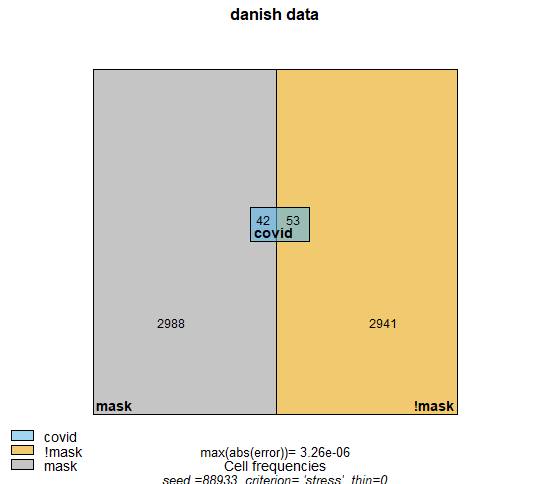Only two days after the NZ government announced mandatory mask wearing rules the much awaited Danish mask study was published, and it is conclusive; masks give no statistically significant protection from Covid19.
Here’s the study: https://www.acpjournals.org/doi/10.7326/M20-6817
Results:
A total of 3030 participants were randomly assigned to the recommendation to wear masks, and 2994 were assigned to control; 4862 completed the study. Infection with SARS-CoV-2 occurred in 42 participants recommended masks (1.8%) and 53 control participants (2.1%). The between-group difference was −0.3 percentage point (95% CI, −1.2 to 0.4 percentage point; P = 0.38) (odds ratio, 0.82 [CI, 0.54 to 1.23]; P = 0.33). Multiple imputation accounting for loss to follow-up yielded similar results. Although the difference observed was not statistically significant, the 95% CIs are compatible with a 46% reduction to a 23% increase in infection.
Conclusion:
The recommendation to wear surgical masks to supplement other public health measures did not reduce the SARS-CoV-2 infection rate among wearers by more than 50% in a community with modest infection rates, some degree of social distancing, and uncommon general mask use. The data were compatible with lesser degrees of self-protection.
Below is our Euler diagram summarising the findings of the Danish mask trial.
The small difference in event proportions, with a slightly higher proportion in the control group, was not distinguishable from a chance finding (“not statistically significant” is the boffin term).
This is probably the best evidence we have up to now, which is disappointing for advocates of mask use to prevent covid-19 infection. This evidence is consistent with previous trials which found no effect in trials designed to assess the effect of masks to prevent the community transmission of influenza.

